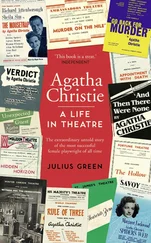Alice Green - Town Life in the Fifteenth Century, Volume 2
Здесь есть возможность читать онлайн «Alice Green - Town Life in the Fifteenth Century, Volume 2» — ознакомительный отрывок электронной книги совершенно бесплатно, а после прочтения отрывка купить полную версию. В некоторых случаях можно слушать аудио, скачать через торрент в формате fb2 и присутствует краткое содержание. Жанр: literature_19, foreign_antique, foreign_prose, Историческая проза, на английском языке. Описание произведения, (предисловие) а так же отзывы посетителей доступны на портале библиотеки ЛибКат.
- Название:Town Life in the Fifteenth Century, Volume 2
- Автор:
- Жанр:
- Год:неизвестен
- ISBN:нет данных
- Рейтинг книги:5 / 5. Голосов: 1
-
Избранное:Добавить в избранное
- Отзывы:
-
Ваша оценка:
- 100
- 1
- 2
- 3
- 4
- 5
Town Life in the Fifteenth Century, Volume 2: краткое содержание, описание и аннотация
Предлагаем к чтению аннотацию, описание, краткое содержание или предисловие (зависит от того, что написал сам автор книги «Town Life in the Fifteenth Century, Volume 2»). Если вы не нашли необходимую информацию о книге — напишите в комментариях, мы постараемся отыскать её.
Town Life in the Fifteenth Century, Volume 2 — читать онлайн ознакомительный отрывок
Ниже представлен текст книги, разбитый по страницам. Система сохранения места последней прочитанной страницы, позволяет с удобством читать онлайн бесплатно книгу «Town Life in the Fifteenth Century, Volume 2», без необходимости каждый раз заново искать на чём Вы остановились. Поставьте закладку, и сможете в любой момент перейти на страницу, на которой закончили чтение.
Интервал:
Закладка:
These fragments of old speech and song lead us into the very midst of the lanes and workshops of a mediæval town. They recall for us the countless political and social troubles amid which the trader was slowly fighting his way upward, and which left their deep impress on his character and view of life. A pervading suspicion, a distrustful caution, are the ground-note of many a song. Rude proverbs of daily speech, jingling rhymes of wise counsel, all are profoundly marked by the narrow prudence of people set in the midst of pit-falls, to whom danger was ever present, whether at the council chamber or at the tavern or at a friend’s dinner table, and among whom talk and clatter with the tongue were looked on as an unspeakable indiscretion. [9] “Take not every rope’s end with every man that hauls,” ran the warning to the young. “Believe not all men that speak thee fair, Whether that it be common, burgess or mayor.” Manners and Meals, 183. See Songs and Carols (Percy Society, vol. xxiii.) viii. ix. xviii.
They picture a life anxious and difficult, whose recognized condition is one of toil that knows no relaxation and no end, of hardship borne with unquestioning endurance – a life amid whose humble prosperity family affection and the family welfare are best assured by having one roof, one entrance door, one fire, and one dining table, and a “back door” is looked on as an extravagance which would bring any household to ruin. After a man had lived hard and worked strenuously he still stood in need of the constantly recurring warning against any bitterness of envy at the prosperity of a lucky dealer next door. The limits of his ambition and his duty are bounded by rigid lines; and the standard of conduct is one framed for a laborious middle class, with its plain-spoken seriousness, its sturdy morality, its activity and rectitude and independence, its dulness and vigilance and thrift. It is the duty of good men to set their people well to work, to keep house carefully, to get through any heavy job steadily and swiftly, to pay wages regularly, to give true weight, to remember ever that “Borrowed thing must needs go home.” They are not to ape their betters in dress, only
“Be as pure as flour taken from the bran
In all thy clothing and all thine array.”
With one whom “thou knowest of greater state” there should be no easy fellowship, no dining or betting or playing at dice; above all there must be no show of overmuch “meekness” or servility, “for else a fool thou wilt be told.” [10] Manners and Meals, 182.
A practical religion adds its simple obligations. [11] Percy Society, vol. xxiii. Songs and Carols, see songs xxxii. and xxxv.
Men ought to pay their tithes, to give to the poor, to be strong and stiff against the devil. The prayer on awaking, the daily mass before working hours, the duties of self-control and submission, must ever be kept in mind. For the trader indeed the way of virtue was a narrow one and straight. Three deaths ever stand menacingly before him. First comes the common lot, the mere severing of soul and body.
“The tother death is death of Shame,
If he die in debt or wicked fame;
The third death, so saith the clerks,
If he hath no good works.” [12] Commonplace book of the fifteenth century edited by Miss Toulmin Smith. Catechism of Adrian and Epotys, p. 40, lines 421-8.
But side by side with directions about mercy, truth, and fulfilling the law, come other warnings – warnings about carving meat and cutting bread and dividing cheese, about a formal and dignified bearing, how to walk and stand and kneel, how to enter a house or greet a friend in the street – all carefully and laboriously shaped into rhyme. In the new sense of changing customs, of fashions that came and went with the revolutions of society, [13] “Men’s works have often interchange That now is nurture sometime had been strange. Things whilom used be now laid aside And new fetis [fashions] daily be contrived.” – Caxton’s Book of Courtesy (E. E. Text Society), 45.
training and thought and conscious endeavour were called in to replace the simplicity of the old unvarying forms. Manners became a subject of serious anxiety. Throwing aside the mass of tradition handed down from century to century, when every usage was consecrated by custom, and determined by immemorial laws as to the relations of class to class, the burghers, side by side with the professional and middle classes all over the kingdom, were tending towards the realization of a new social order, in which men were no longer obliged as formerly to pass through the door of the Church to find the way of social advancement, but might attain to it along the common high road of secular enterprise. The notion of the worth of the individual man was none the less important for the homely and practical form given to it in their rude and untrained expression. No one, they declared simply, need be shamefaced, of whatever lowly position he might come, for
“In hall or chamber, or where thou gon,
Nurture and good manners maketh man.”
In whatever society he might find himself, the humblest citizen should therefore so order his behaviour that when he left the table men would say “A gentleman was here.” [14] Manners and Meals, 271.
The practical divinity of plain people easily drew the graciousness of outward demeanour within the sphere of religion, and “clerks that knew the seven arts” explained
“That courtesy from heaven came
When Gabriel our Lady grette
And Elizabeth with Mary mette.” [15] Ibid. p. 265.
Since “all virtues are closed in courtesy and all vices in villany” or rudeness, the best prayer one could make was to be well-mannered, for the virtues of a fine behaviour reached as far as thought could go.
“In courtesy He make you so expert,
That through your nurture and your governance,
In lasting bliss He may yourself advance.”
These books of courtesy show us one side of the great change that passed over society [16] The popularity of the “Ship of Fools,” with its trite, long-winded, and vague moralities, is an excellent indication of the intellectual position of the new middle class.
when the mediæval theory of status was broken down by the increase of riches which trade brought with it, and the new chances of rising in the world through wealth. The yeoman might become a gentleman by getting into a lord’s household, and “spending large and plenty.” The squire who would be a knight without the danger of bearing arms need only go to the king’s court with his purse full of money. The man of letters, the merchant, the seeker after pleasure, whoever and whatever a man might be, he could win neither degree nor worship “but he have the penny ready to take to.” [17] Songs and Carols (Percy Society, xxiii.), song xxx.
When the acquisition of wealth or the passage from one class to another was practically impossible, poverty and a low estate might still be dignified. But as soon as fortune and position had been brought within the reach of all, the man who remained poor might be looked on as idle or incapable. A new test of superiority was applied, a test of material prosperity, and by this measure the townsman was judged by his neighbours and naturally judged himself. On all sides we find indications of the excited ambition which had begun to stir in every class,
“Now every boy will counterfeit a knight,
Report himself as good as he.” [18] Songs and Carols (Percy Society, xxiii.) lxxvi.
Интервал:
Закладка:
Похожие книги на «Town Life in the Fifteenth Century, Volume 2»
Представляем Вашему вниманию похожие книги на «Town Life in the Fifteenth Century, Volume 2» списком для выбора. Мы отобрали схожую по названию и смыслу литературу в надежде предоставить читателям больше вариантов отыскать новые, интересные, ещё непрочитанные произведения.
Обсуждение, отзывы о книге «Town Life in the Fifteenth Century, Volume 2» и просто собственные мнения читателей. Оставьте ваши комментарии, напишите, что Вы думаете о произведении, его смысле или главных героях. Укажите что конкретно понравилось, а что нет, и почему Вы так считаете.












